Veganism is becoming increasingly mainstream as consumers adopt the lifestyle for a variety of reasons, and bakers of all sizes are catching on to the trend rapidly
Vegans got an extra Christmas present last year when Asda launched vegan mince pies.
Although Asda won’t reveal how many it sold, the retailer says customers were delighted with the launch, which comes as veganism becomes a lifestyle choice for a growing number of people – particularly ‘millennials’. According to The Vegan Society, which says there are 542,000 vegans in Great Britain, the main motivation is animal rights, although some consumers go vegan because of the impact animal agriculture has on the environment, while others are aiming to improve their health.
The profile of veganism was boosted by last month’s ‘Veganuary’ activity, which spurred launches such as Hummingbird Bakery’s vegan red velvet cupcake, and Pieminister’s ‘Kevin’ the vegan pie. Supermarkets and café chains have targeted vegans with plant-based product ranges. Pret, for example, offers 34 vegan dishes and snacks, while pizza chain Zizzi has launched the Arcobaleno (Rainbow) vegan pizza (pictured above).
Ingredients suppliers are also tapping the trend, with Puratos rolling out its first vegan cake mixes, in plain and chocolate.
Meanwhile, Warrens Bakery is tapping the trend with products including a vegan pasty range, substituting dairy with plant-based oils and fats. “We’ve been surprised at how large the interest has been,” says Warrens head baker Jason Jobling, who admits the process has been challenging. “It’s hard as a vegan to find food easily on the high street, so by providing both lunch and snack options we’ve found there has been a very strong word-of-mouth effect.”
Grace Apps at Kent bakery Vegan Antics, which has a product range including brownies, blondies, millionaire’s shortbread, waffles, Bakewell tarts and cookies, agrees it is a challenge. “Countless recipes have failed the first, second or sometimes even the 20th time. Some products take longer than others and some we are still working on,” she explains.
Butter, milk, cream and eggs are obvious no-nos in vegan recipes, but bakers need to steer clear of many other ingredients, such as honey, gelatine and carmine, which is produced by crushing insects. Suppliers also need to be careful with sprinkles, which may be coated in shellac, while some E-numbers are derived from animals.
%%Quote_14%%
Michelle Orme from Leicester-based The Vegan Cakery says bakers must also ensure flour has not been refined through an animal product. Orme started The Vegan Cakery six years ago because she found it difficult to source good-quality vegan cakes and wanted the business to be about raising funds for animal charities. “Animal welfare is why I became vegan, and I thought the odd cake would help raise a few pounds. However, the whole thing snowballed rapidly,” she says.
Orme believes there is a misconception that vegan diets are expensive. “As all my products are handmade, there is a premium, but that’s the case with handmade artisan products which use dairy and eggs too, when you compare them to mass-produced lines.”
Like other vegan goods suppliers, Melissa Morgan of Brixton-based Ms Cupcake says her customers do not necessarily identify as vegan. “Most are just regular, local people. Some might have allergies or are lactose-intolerant and some could be avoiding certain ingredients on religious grounds – vegan foods are halal and kosher by default.”
The Vegan Society spokeswoman Dominika Piasecka notes vegan options make commercial sense. “It opens up the potential market to half a million vegans in Britain, a million more vegetarians, meat and dairy reducers, the lactose-intolerant, the health-conscious, and others who simply enjoy vegan food from time to time.”
Discovering dairy alternatives
Cutting down on dairy is a growing trend and the market for dairy replacements is growing as the supermarkets devote metres of shelves to plant-based alternatives.
There are plenty of products available for bakers to use in their recipes such as Alpro Dairy Free soya and rice drinks or sunflower spreads.
Michelle Orme at the Vegan Cakery created all her recipes from scratch, adapting ‘regular’ recipes, and she admits to having had to deal with a fair amount of trial and error to begin with.
“There are a huge number of replacement dairy-free spreads which can be used instead of butter. [It’s] the same, too, with milk alternatives such as soya, hazelnut and almond.”
Jason Jobling, head baker at Warrens Bakery, says the business has spent a lot of time developing recipes that can be bound with water or other simple supplements.
“The key component we’ve been strict about is that changes we make to the recipe cannot compromise on flavour in comparison to our non-vegan products,” he adds. “Feedback on products from vegan customers, as well as non-vegan customers who have chosen vegan products, is extremely positive.”
Research is key when trying to adapt traditionally non-vegan desserts such as cakes, brownies and doughnuts, says Grace Apps at Vegan Antics.
“Try to keep things simple, don’t get caught up in complicated recipes, and remember that there’s always a vegan alternative to non-vegan ingredients.”
Cracking egg replacers
For bakers who want to go egg-free, there is a range of options.
The Cake Box, for example, worked with a British university to develop a mix that, while not vegan, replaces the egg with milk and soy proteins. The company prides itself on the fact its cakes don’t taste different to those that contain eggs.
Louise Nicholson at the Naked Bakery in Rosyth says her choice of egg replacer depends on what she is baking. She uses aquafaba – the liquid from chickpeas – to make macarons, explaining it whisks up the same as egg whites and “is also great as it’s a by-product that’s usually thrown away, so there’s no wastage”. For cakes, she uses apple cider vinegar, soya milk and oil to give a light airy sponge.
Grace Apps of Vegan Antics uses chickpea water to replace the egg in meringues, while Paula Lawes from Paula’s Vegan Bakery in Gosport uses plant milk with apple cider vinegar. “Eggs are just there as a binding agent, and you can use things like bananas, apple sauce, chia seeds and flax seeds,” she says.
Other replacers include Orgran No Egg, made from ingredients including tapioca flour, calcium carbonate, citric acid and vegetable gum; and Ener-G egg replacer, made from potato starch and tapioca flour.






















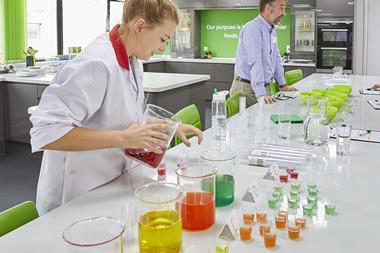
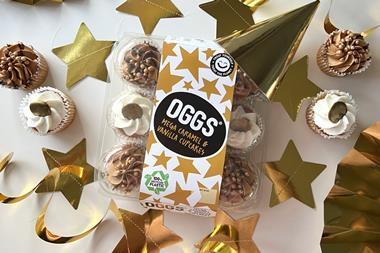
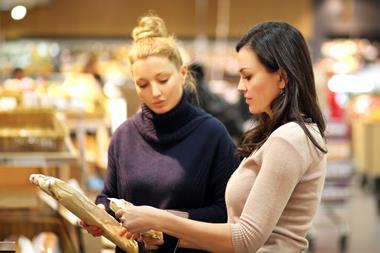
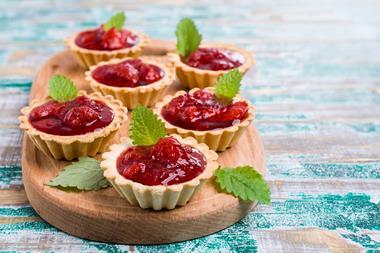
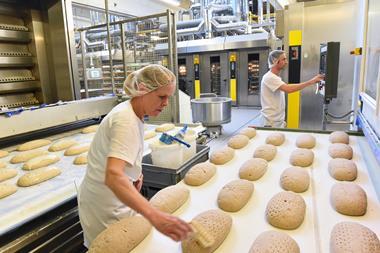

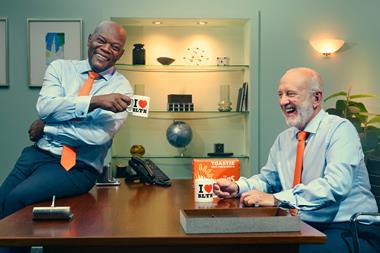
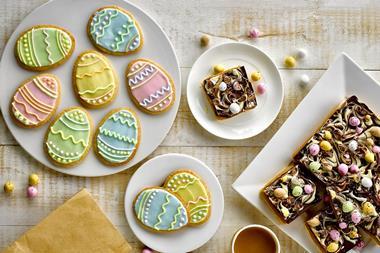

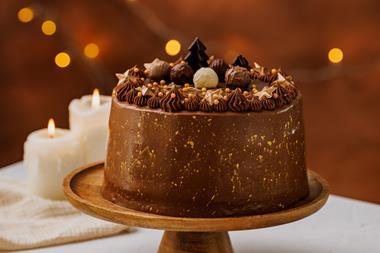
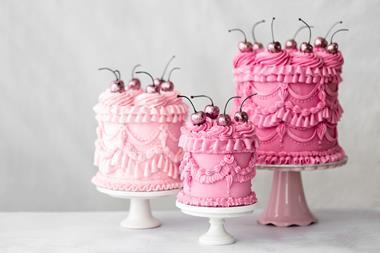


No comments yet